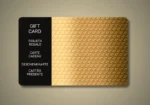What Is Live Scan Fingerprinting?

Live Scan is a digital fingerprinting technology used to capture fingerprints electronically rather than using traditional ink and paper. Once captured, your fingerprints are transmitted directly to state or federal agencies—such as the California Department of Justice (DOJ) or the Federal Bureau of Investigation (FBI)—for the purpose of conducting a criminal background check.
Live Scan eliminates the need for physical fingerprint cards and offers a much faster, cleaner, and more efficient way of verifying an individual’s identity and criminal history. The system is widely used in various industries and for many types of applications, from employment screening to licensing and certification.
Why Is Live Scan Required?
Live Scan fingerprinting is required in situations where an organization, employer, or agency needs to verify that a person does not have a disqualifying criminal record. This can include serious charges such as violent crimes, drug offenses, or fraud.
Here are some common scenarios where Live Scan might be required:
- Employment: Especially in sensitive fields like healthcare, education, security, or finance.
- Licensing: For state licenses such as nursing, real estate, or contractor licenses.
- Volunteering: Especially when working with vulnerable groups like children, the elderly, or individuals with disabilities.
- Adoption or Foster Care: As part of the screening process for prospective parents.
- Immigration or Visa Applications: When biometric data is required by federal agencies.
How Does the Live Scan Process Work?
Here’s a basic rundown of how a typical Live Scan fingerprinting session works:
- Request Form or ORI Number: You must bring a Request for Live Scan form provided by your employer or licensing agency. This form includes essential details such as the ORI number (Originating Agency Identifier), which tells the system where to send your results.
- Bring Valid ID: A government-issued photo ID is required—such as a driver’s license, state ID, or passport.
- Fingerprint Capture: A trained technician scans your fingerprints using a digital machine. It’s fast, clean, and usually completed in less than 10 minutes.
- Submission: Your prints are transmitted to the appropriate agencies (e.g., DOJ, FBI) instantly.
- Results: The requesting agency receives the background check results, typically within 1–7 days, though some cases may take longer.
Live Scan vs. Traditional Ink Fingerprinting
You might wonder: what’s wrong with good old ink and paper? In short—plenty. Ink fingerprinting is messier, slower, and more prone to errors or smudging. Here’s a quick comparison:
| Feature | Live Scan | Ink Fingerprinting |
| Cleanliness | Clean and digital | Ink can smudge and stain |
| Speed | Instant transmission | Mail-in delays |
| Accuracy | High accuracy and readability | Higher rejection rates |
| Convenience | Faster results, fewer rejections | May require retakes |
Benefits of Using a Certified Live Scan Provider
Choosing a certified and experienced Live Scan provider ensures a smooth and efficient process. Here’s why it matters:
- Trained technicians reduce the risk of poor-quality prints and rejections.
- Faster processing times help you meet job or license deadlines.
- Privacy and security protocols protect your personal data.
- Mobile options may be available for group or business needs.
Whether you’re applying for a new career, seeking a professional license, or volunteering your time, working with a reputable provider helps make the process stress-free and reliable.
Final Thoughts: Why You Might Need Live Scan
Live Scan fingerprinting isn’t just a bureaucratic hurdle—it’s a vital tool used to maintain public safety and trust. By ensuring that individuals in sensitive roles have passed a thorough background check, Live Scan helps employers, schools, and agencies make informed decisions. We recommend newport beach livescan.





















